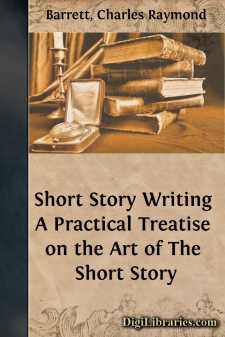Categories
- Antiques & Collectibles 13
- Architecture 36
- Art 48
- Bibles 22
- Biography & Autobiography 813
- Body, Mind & Spirit 142
- Business & Economics 28
- Children's Books 16
- Children's Fiction 13
- Computers 4
- Cooking 94
- Crafts & Hobbies 4
- Drama 346
- Education 46
- Family & Relationships 57
- Fiction 11829
- Games 19
- Gardening 17
- Health & Fitness 34
- History 1377
- House & Home 1
- Humor 147
- Juvenile Fiction 1873
- Juvenile Nonfiction 202
- Language Arts & Disciplines 88
- Law 16
- Literary Collections 686
- Literary Criticism 179
- Mathematics 13
- Medical 41
- Music 40
- Nature 179
- Non-Classifiable 1768
- Performing Arts 7
- Periodicals 1453
- Philosophy 64
- Photography 2
- Poetry 896
- Political Science 203
- Psychology 42
- Reference 154
- Religion 513
- Science 126
- Self-Help 84
- Social Science 81
- Sports & Recreation 34
- Study Aids 3
- Technology & Engineering 59
- Transportation 23
- Travel 463
- True Crime 29
Short Story Writing A Practical Treatise on the Art of The Short Story
Categories:
Description:
Excerpt
SHORT STORY WRITING
some old belief vitalized by its bearing on our lives to-day, an analysis of an obscure calling, a glimpse at a forgotten quarter ... but one thing it can never be—it can never be 'a novel in a nutshell'."
"A short story ... must lead up to something. It should have for its structure a plot, a bit of life, an incident such as you would find in a brief newspaper paragraph.... He (Richard Harding Davis) takes the substance of just such a paragraph, and, with that for the meat of his story, weaves around it details, descriptions and dialogue, until a complete story is the result. Now, a story is something more than incidents and descriptions. It is a definite thing. It progresses constantly. It arrives somewhere. It must enforce some idea (no matter what). It must be such a reality that a man who read it would carry away a definite impression."
It is evident, then, that the term short story is properly used only when it means a short prose narrative, which presents artistically a bit of real life; the primary object of which is to amuse, though it may also depict a character, plead a cause, or point a moral; this amusement is neither of that æsthetic order which we derive from poetry, nor of that cheap sort which we gain from a broad burlesque: it is the simple yet intellectual pleasure derived from listening to a well told narrative.
The first requisite of a short story is that the writer have a story to tell—that is, a plot. He may present pretty scenes and word pictures if he will, but he must vivify and humanize them by the introduction of certain characters, patterned after the people of real life; and these characters must move and act and live. The presentation of "still life" pure and simple is not in the province of the short story.
The question of length is but relative; in general a short story should not exceed 10,000 words, and it could hardly contain less than 1,000; while from 3,000 to 5,000 is the most usual length. Yet Hawthorne's "The Gentle Boy" contains 12,000 words; Poe's "The Gold Bug," 13,000; and perhaps the majority of James' exceed the maximum, while "The Lesson of the Master" requires 25,000, and "The Aspern Papers" 32,000. Indeed, the length of any story is determined, not so much by some arbitrary word limit, as by the theme with which it deals....


